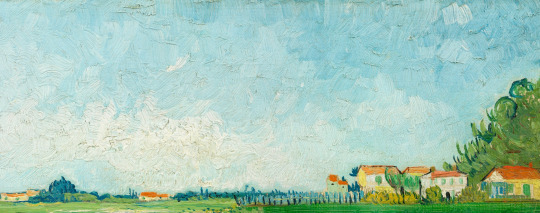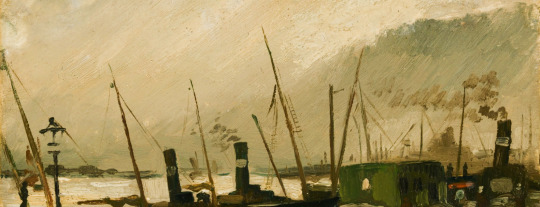Text
"The term “postmemory” is meant to convey its temporal and qualitative difference from survivor memory, its secondary or second-generation memory quality, its basis in displacement, its belatedness. Postmemory is a powerful form of memory precisely because its connection to its object or source is mediated not through recollection but through projection, investment, and creation. That is not to say that survivor memory itself is unmediated, but that it is more directly connected to the past. Postmemory characterizes the experience of those who grow up dominated by narratives that preceded their birth, whose own belated stories are displaced by the stories of the previous generation, shaped by traumatic events that they can neither understand nor re-create."
— Marianne Hirsch, from "Projected Memory"
4 notes
·
View notes
Text
" [...] Fiction is a certain packaging of the truth, or higher truths. Indeed I find that there is more truth in Proust, albeit it is officially fictional, than in the babbling analyses of the New York Times that give us the illusions of understanding what's going on. Newspapers have officially the right facts, but their interpretations are imaginary - and their choice of facts are arbitrary. They lie with right facts; a novelist says the truth with wrong facts."
— Nassim Nicholas Taleb, in conversation with Rolf Dobelli
5 notes
·
View notes
Text
“The goal isn’t to be happy with my voice. What I want is simply to have one.”
— Jhumpa Lahiri, in an interview with Francesco Pacifico.
10 notes
·
View notes
Text
“I seldom know where I’m headed, but if the story is meant to be, you cross over to the other side—you’re inside it, and there’s an engine.”
— Jhumpa Lahiri, in an interview with Francesco Pacifico.
5 notes
·
View notes
Text
"It’s almost impossible to explain—but in Italian, I can be the Jhumpa who goes to buy a sandwich from the Calabrian couple at the market by the Porta Portese, who goes to the pool in Trastevere, and when I say hi to the person swimming laps in the lane next to mine they won’t have the faintest idea of my other life. Those are the moments I feel most alive and at ease. Italy’s great gift to me is the voice that tells me that I don’t have to follow the rules, that I can be who I want and write what I want on my own terms. It’s only when I’m writing in Italian that I manage to turn off all those other, judgmental voices, except perhaps my own. In my life in English, so to speak, there’s a sense that if I don’t hit a certain benchmark, I’ve failed. That’s the judgment I’ve felt from American culture from the start—the expectation to assimilate, and then, when I became a writer, to “represent” the Indian American experience, the immigrant experience. Then there’s the eternal, original judgment—of my mother, my parents, their immigrant community, their many friends with advanced degrees. Theirs was a language of comparison and competition, everyone striving to establish themselves and get ahead. And there’s the overhanging judgment, of the world my parents left behind in Kolkata. All of which I internalized."
— Jhumpa Lahiri, in an interview with Francesco Pacifico.
7 notes
·
View notes
Text
“It is a mysterious thing, falling in love with another language—we don’t talk about it enough when it happens.”
— Jhumpa Lahiri, in an interview with Francesco Pacifico.
7 notes
·
View notes
Text
“After I won the Pulitzer … My parents were stunned, and extremely proud, but I remember my father said, ‘You should always have a backup plan. You’re like a politician now, and you will go in and out of favor.’”
— Jhumpa Lahiri, in an interview with Francesco Pacifico.
5 notes
·
View notes
Text
"I love him, his shoulders, his angular, stooping figure – and at the same time I see behind him woods and stars, and a clear voice utters words that bring me peace [...]."
— Erich Maria Remarque, from "All Quiet on the Western Front" (translated by A. W. Wheen)
#erich maria remarque#lit#literature#german literature#german lit#all quiet on the western front#world war I
40 notes
·
View notes
Text




Vincent van Gogh and his skies.
Montmartre: Behind the Moulin de la Galette (detail) . 1887
Square Saint-Pierre at Sunset (detail). 1887
Field with Poppies (detail) . 1888
The De Ruijterkade in Amsterdam (detail). 1885
#happy birthday vincent!#vincent van gogh#art#art history#art detail#detail#details#painting#19th century#19th century painting#dutch painting#dutch#van gogh
82 notes
·
View notes
Text


Jacob van Walscapelle — Flowers in a Glass Vase. circa 1670. details
#jacob van walscapelle#art#art history#art detail#detail#details#painting#17th century#17th century painting#dutch golden age#dutch painting#dutch#van walscapelle#flowers
205 notes
·
View notes
Text


Jacques-Louis David — Antoine-Laurent Lavoisier avec sa femme. details. 1788
900 notes
·
View notes
Text


Charles Ethan Porter — Peonies in a Vase. details. circa 1885
#charles ethan porter#art#art history#art detail#art details#detail#details#painting#19th century#19th century painting#american painting#american#porter#peonies#still life#still life painting
124 notes
·
View notes
Text

Pietro Novelli — David with the Head of Goliath (detail). circa 1630s
#pietro novelli#art#art history#art detail#art details#detail#details#painting#baroque#baroque painting#17th century#17th century painting#italian painting#italian#novelli
847 notes
·
View notes
Text
Proust, Joyce, Faulkner, Rilke, Lawrence, Gide…one could go on citing author after author; the list is endless of those around whom thick encrustations of interpretation have taken hold. But it should be noted that interpretation is not simply the compliment that mediocrity pays to genius. It is, indeed, the modern way of understanding something, and is applied to works of every quality. Thus, in the notes that Elia Kazan published on his production of A Streetcar Named Desire, it becomes clear that, in order to direct the play, Kazan had to discover that Stanley Kowalski represented the sensual and vengeful barbarism that was engulfing our culture, while Blanche Du Bois was Western civilization, poetry, delicate apparel, dim lighting, refined feelings and all, though a little the worse for wear to be sure. Tennessee Williams’ forceful psychological melodrama now became intelligible: it was about something, about the decline of Western civilization. Apparently, were it to go on being a play about a handsome brute named Stanley Kowalski and a faded mangy belle named Blanche Du Bois, it would not be manageable.
— Susan Sontag, from "Against Interpretation"
#susan sontag#sontag#lit#literature#against interpretation#proust#joyce#faulkner#rilke#lawrence#gide#hermeneutics#art#a streetcar named desire#elia kazan
31 notes
·
View notes
Text
Interpretation in our own time, however, is even more complex. For the contemporary zeal for the project of interpretation is often prompted not by piety toward the troublesome text (which may conceal an aggression), but by an open aggressiveness, an overt contempt for appearances. The old style of interpretation was insistent, but respectful; it erected another meaning on top of the literal one. The modern style of interpretation excavates, and as it excavates, destroys; it digs “behind” the text, to find a sub-text which is the true one. The most celebrated and influential modern doctrines, those of Marx and Freud, actually amount to elaborate systems of hermeneutics, aggressive and impious theories of interpretation. All observable phenomena are bracketed, in Freud’s phrase, as manifest content. This manifest content must be probed and pushed aside to find the true meaning—the latent content beneath. For Marx, social events like revolutions and wars; for Freud, the events of individual lives (like neurotic symptoms and slips of the tongue) as well as texts (like a dream or a work of art)—all are treated as occasions for interpretation. According to Marx and Freud, these events only seem to be intelligible. Actually, they have no meaning without interpretation. To understand is to interpret. And to interpret is to restate the phenomenon, in effect to find an equivalent for it. Thus, interpretation is not (as most people assume) an absolute value, a gesture of mind situated in some timeless realm of capabilities. Interpretation must itself be evaluated, within a historical view of human consciousness. In some cultural contexts, interpretation is a liberating act. It is a means of revising, of transvaluing, of escaping the dead past. In other cultural contexts, it is reactionary, impertinent, cowardly, stifling.
— Susan Sontag, from "Against Interpretation"
8 notes
·
View notes
Text

Emma Stone in POOR THINGS
Photography: Atsushi Nishijima
754 notes
·
View notes
Text
"Nostalgia is not for the God we are missing, it is the nostalgia for ourselves who are not enough. We miss our impossible grandeur—my unreachable present is my paradise lost."
— Clarice Lispector, from “The Passion According to G.H.” (translation by Idra Novey)
41 notes
·
View notes